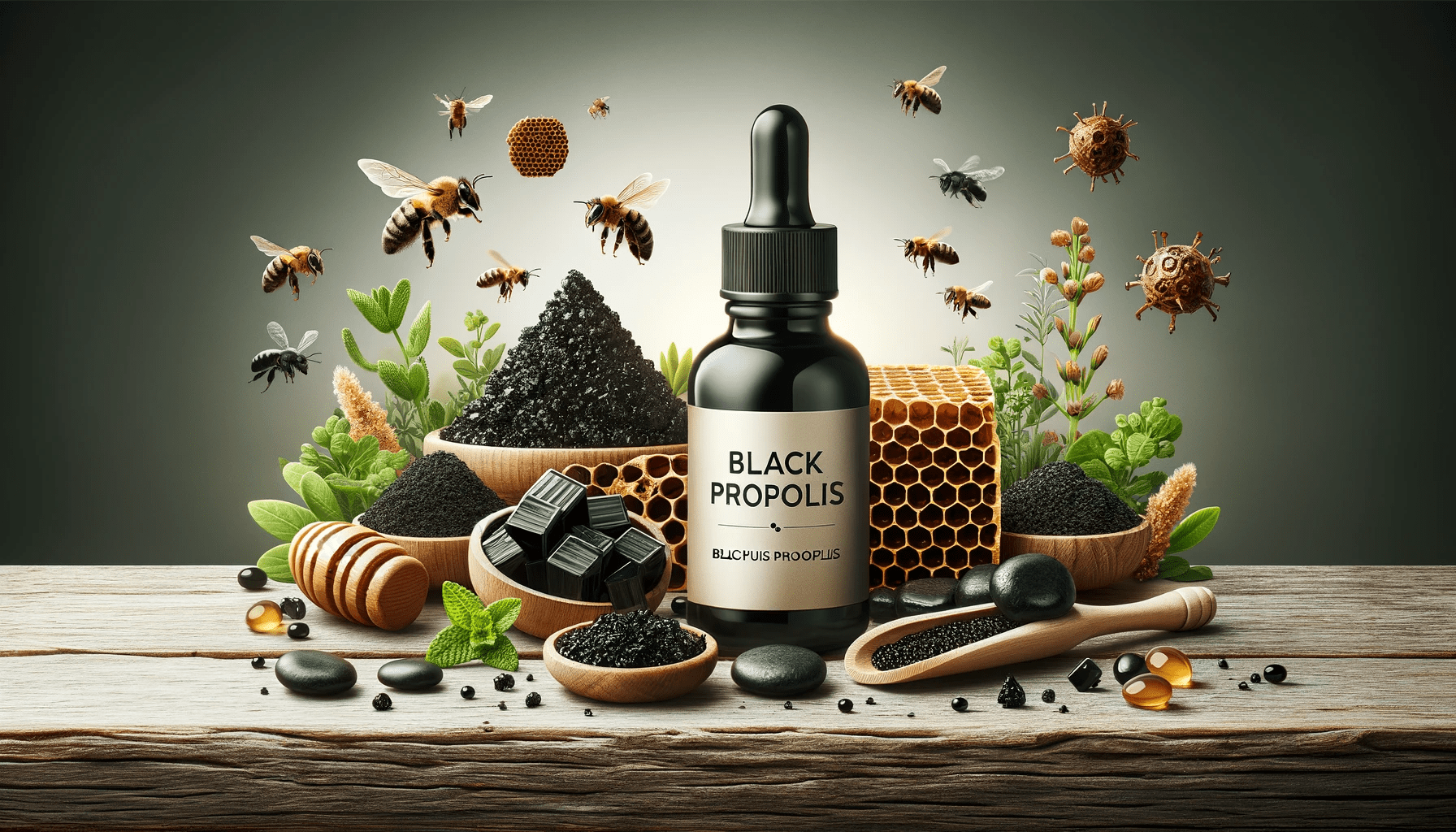Black propolis, a variant of the well-known bee propolis, has been capturing the interest of the scientific community and health enthusiasts alike. This dark, resinous substance, produced by bees from the sap on needle-leaved trees or evergreens, is packed with bioactive compounds, including flavonoids, phenolic acids, and terpenes. Its unique composition lends itself to a wide array of health benefits, from antimicrobial properties to cancer prevention. This article delves into the science-backed advantages of black propolis and its potential as a natural remedy for various health conditions.
1. Rich Antioxidant Properties
One of the most celebrated attributes of black propolis is its potent antioxidant capacity, which plays a crucial role in protecting the body against oxidative stress and cellular damage.
- Combatting Oxidative Stress: Research published in "Food and Chemical Toxicology" highlights the significant antioxidant activity of black propolis extracts, underscoring their potential in preventing oxidative stress-related diseases【1】.
2. Antimicrobial and Antiviral Effects
Black propolis exhibits broad-spectrum antimicrobial and antiviral properties, making it an effective natural agent against various pathogens.
- Battling Infections: A study in "Journal of Agricultural and Food Chemistry" demonstrated that black propolis possesses strong antimicrobial activity against a range of bacteria, including Staphylococcus aureus and Escherichia coli, as well as antiviral effects against certain strains of viruses【2】.
3. Anti-inflammatory Potential
The anti-inflammatory effects of black propolis contribute to its therapeutic benefits in managing conditions associated with chronic inflammation.
- Reducing Inflammation: Findings in "Inflammation" suggest that black propolis can modulate inflammatory responses, potentially offering relief in inflammatory conditions such as arthritis and asthma【3】.
4. Cancer Prevention and Therapy
Emerging research points to the anticancer properties of black propolis, with studies indicating its ability to inhibit tumor growth and induce apoptosis in cancer cells.
- Anticancer Activities: A pivotal study in "Cancer Letters" revealed that specific compounds in black propolis, including flavonoids and phenolic acids, possess anticancer activities, capable of suppressing the proliferation of various cancer cell lines【4】.
5. Supporting Cardiovascular Health
Black propolis also holds promise in supporting cardiovascular health by improving lipid profiles and reducing blood pressure.
- Cardiovascular Benefits: Research in "Phytotherapy Research" has shown that supplementation with black propolis can lead to improvements in lipid profiles, including reductions in total cholesterol and LDL ("bad") cholesterol levels, thereby lowering the risk of cardiovascular diseases【5】.
6. Enhancing Gastrointestinal Health
The benefits of black propolis extend to the gastrointestinal tract, where it can help protect against ulcers and support overall digestive health.
- Gastrointestinal Protection: A study published in "Evidence-Based Complementary and Alternative Medicine" found that black propolis exhibits protective effects against gastric ulcers, likely due to its antioxidant and anti-inflammatory properties【6】.
7. Immunomodulatory Effects
Black propolis can influence the immune system in beneficial ways, enhancing the body's natural defenses against diseases.
- Boosting Immune Function: According to "Biomolecules," black propolis has immunomodulatory effects, capable of stimulating an immune response and enhancing the activity of immune cells【7】.
Conclusion
Black propolis emerges as a potent natural remedy with a spectrum of health benefits, from antimicrobial and anti-inflammatory actions to potential roles in cancer prevention and cardiovascular health. Its diverse bioactive compounds make it a subject of ongoing scientific interest, with promising implications for natural health products. As with any natural supplement, consultation with a healthcare provider is recommended to determine the appropriate use and dosage for individual health needs.
References:
- "Food and Chemical Toxicology," on the antioxidant properties of black propolis.
- "Journal of Agricultural and Food Chemistry," on the antimicrobial and antiviral effects of black propolis.
- "Inflammation," on the anti-inflammatory potential of black propolis.
- "Cancer Letters," on the anticancer activities of black propolis.
- "Phytotherapy Research," on the cardiovascular benefits of black propolis.
- "Evidence-Based Complementary and Alternative Medicine," on the gastrointestinal protective effects of black propolis.
- "Biomolecules," on the immunomodulatory effects of black propolis.
Discover black propolis on the Amazon store : link

Leave a comment